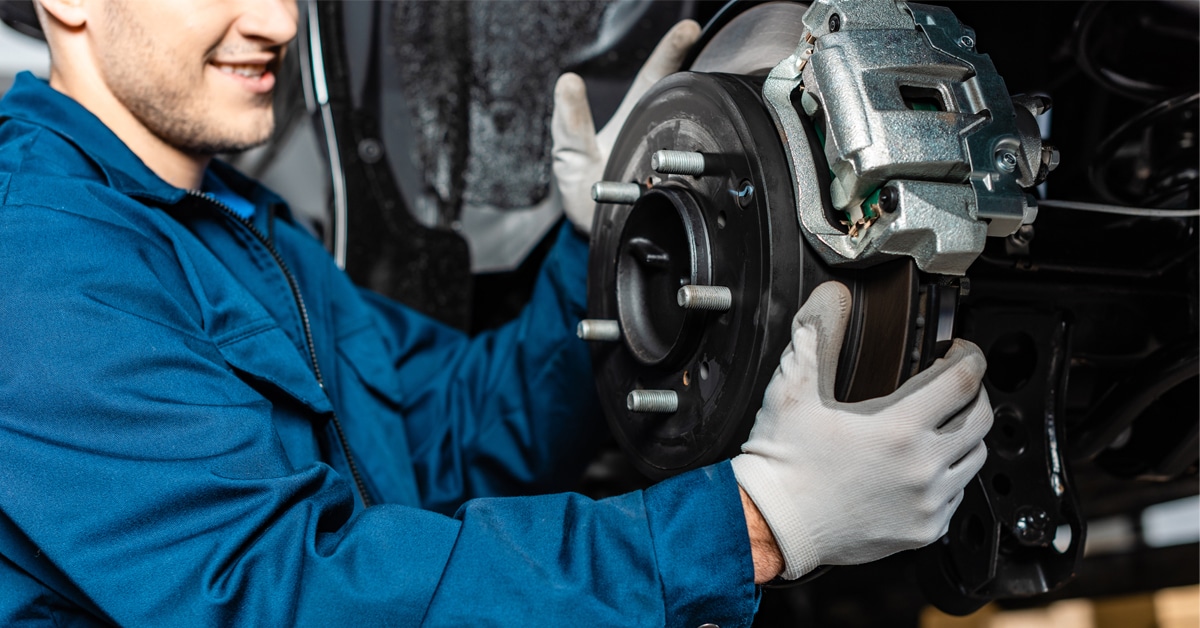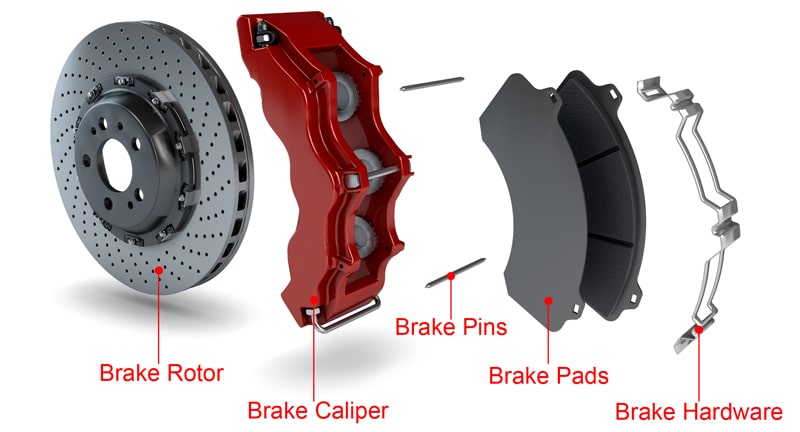Welcome to Autocare Pro’s, your trusted destination for top-notch brake repair Lake Jackson TX. Whether you’re searching for reliable brake maintenance or expert brake replacement solutions, our experienced technicians are here to ensure your safety.
At Autocare Pro’s, we prioritize your vehicle’s performance, offering comprehensive diagnostic assessments and exceptional service. Experience peace of mind knowing our dedication to quality and customer satisfaction keeps you confidently in control.
Discover the difference with us today and keep your car in peak condition with the finest brake solutions Lake Jackson offers!

Affordable Brake Repair Lake Jackson TX
Regarding maintaining your vehicle’s brake system, Autocare Pro’s provides top-notch brake repair service in Lake Jackson, TX. Our brake repair services include everything from brake fluid replacements to comprehensive brake system checks, ensuring your vehicle stays safe.
With affordable brake jobs, we focus on delivering quality without breaking the bank. Whether you drive a car, truck, or SUV, our experts will inspect your brakes, including brake fluid levels and brake pedal response, to diagnose and repair any issues efficiently.
Our brake center aims to provide thorough stopping solutions tailored to meet your needs. Trust us for brake repair and brake replacement services that enhance your car’s safety and performance.
Brake repair in Lake Jackson, TX, doesn’t get any better than this. Choose Autocare Pro’s for a free brake inspection and schedule an appointment today to enjoy the peace of mind every driver deserves.
Brakes are essential, and we’re here to ensure they function perfectly. Repair is our forte!

Understanding Brake Services and Their Benefits
At Autocare Pro’s, understanding the complex design of your vehicle’s brakes is essential for maintaining your vehicle’s stopping power. Our brake solutions involve a comprehensive evaluation and restoration process of your car’s hydraulic and anti-lock braking system to ensure optimal performance.
Regular brake maintenance not only enhances your car’s brakes but also extends their lifespan. The benefits of professional brake services include improved road safety, increased reliability, and prevention of costly future repairs.
Knowing when to seek a brake expert can prevent risks associated with malfunctioning brakes. Watch for signs like unusual noises or reduced stopping power.
Addressing any signs early on helps maintain your vehicle’s braking system and ensures you and your family are safe. Investing in maintenance also positively affects your car’s tires, as a well-maintained braking system ensures even tire wear.
Trust Autocare Pro’s for all your automotive needs, ensuring your vehicle’s stopping performance remains impeccable.
Types of Brake Repair and Service Packages
At Autocare Pro’s, we understand the importance of maintaining your vehicle’s braking system with top-notch brake parts and service packages in Lake Jackson, TX. Our solutions are designed to cater to every car and vehicle, ensuring your brakes function optimally.
With our diverse service packages, you’ll find the perfect solution for your car’s braking system needs. Our maintenance solutions include thorough inspections, effective repair solutions, and essential maintenance to keep your brakes in prime condition.
Whether you need routine maintenance or more extensive repair, Autocare Pro’s has got you covered.
We provide comprehensive repair services to ensure the safety and efficiency of your brakes. Trust us to deliver the highest quality service and extend the lifespan of your car.
Choose Autocare Pro’s for all your brake maintenance needs.
Essential Components in Brakes: Brake Pedal and Wheels
When it comes to brake repair for your vehicle in Lake Jackson, TX, understanding the vital components like the brake calipers and the master cylinder is crucial.
The brake system of your vehicle depends on the proper functioning of these components. The brake pedal acts as a vital part, initiating the braking process by activating the master cylinder, and should always be checked to ensure responsive braking.

The brake pads, along with other braking components like the rotor, and caliper, work together to bring your vehicle to a safe stop. The system’s parts that connect the brake pedal to the wheels must be kept in optimal condition.
It is essential that you find skilled professionals who know and are trained on How Brakes Work in a Car.
The Comprehensive Process of Brake Maintenance and Service
We believe that understanding the comprehensive process of brake service and maintenance is crucial for every car owner in Lake Jackson, TX. Our brake service begins with a thorough inspection of your braking system to ensure that all components are in top-notch condition.
Regular maintenance of your vehicle’s brakes extends its lifespan and ensures safety. Throughout the process, our technicians search for Common Brake Issues, and other issues affecting your vehicle’s braking system.
If any brake repairs are necessary, we’ll provide a detailed explanation and work with you to decide on the best course of action. Our ASE-certified team commits to delivering quality service and work on your car, guaranteeing that your brakes perform optimally.
By choosing Autocare Pro’s you can drive with confidence knowing that your vehicle is in the hands of REAL professionals who care.
Signs You Need Brake Repair Service
Noticing the early signs of brake repair and replacement needs is crucial for maintaining your car’s safety and performance.
If you find your vehicle’s brakes making unusual grinding or squealing noises, it might be a sign that your brakes need attention. Check for a spongy brake pedal, which often indicates air in the brake fluid or a potential leak, suggesting repair might be necessary.
Frequent vibrations while braking could mean your rotors are warped and in need of brake rotor repair. Reduced responsiveness or a tire pulling to one side indicates that your brakes might be due for a brake pad replacement. Autocare Pro’s in Lake Jackson, TX specializes in identifying signs of brake issues promptly.
Don’t wait until braking becomes unreliable—ensure your safety by contacting us for a free comprehensive brake inspection. Whether it’s pads, rotors, or fluid, our expert brake service covers it all, ensuring your car is in top-notch condition.
Importance of Regular Brake Inspections
Regular inspections maintain the safety and performance of your vehicle. Neglecting inspections can lead to substantial repair costs and serious safety risks. Routine service helps avoid expensive repairs by addressing minor issues early.
Professional maintenance prevents significant brake repairs, offering long-term financial savings. Scheduling brake inspections every six months ensures proper functioning and helps avoid dangerous situations. Regular maintenance reduces the likelihood of accidents by maintaining effective braking power.
Early interventions, such as replacing worn brake pads, prevent extensive and costly repairs later. Routine inspections should be scheduled often to detect potential issues early and maintain performance. Regular brake maintenance ensures vehicle safety and performance.
Benefits of Professional Brake Repair Services
Choosing professional brake repair services comes with numerous benefits that enhance your vehicle’s safety and performance. The expertise of brake shops like Autocare Pro’s ensures your car’s brake system receives comprehensive attention.
You’ll find these services address crucial brake parts, ensuring your vehicle operates smoothly on the road. Regular checks can prevent costly replacements, making brake maintenance a wise investment. Professional repair services involve a thorough check of the braking system, ensuring each component functions optimally.
Given the complexity of brake systems, trusting professionals for your auto brake system maintenance offers peace of mind.
By utilizing professional brake repair experts, your car’s brakes are fine-tuned to perfection, maintaining safety while driving.
When you choose Autocare Pro’s ASE-certified experts with decades of experience to handle the repair, the entire system is evaluated for wear and tear, maximizing vehicle longevity and performance. Discover the advantages and ensure your safety by opting for professional brake repair.
Expert Tips for Regular Brake Maintenance
We understand the importance of regular brake maintenance to keep your vehicle safe on the road. These expert tips ensure your brake system works efficiently:
First, pay attention to unusual noises from your brake system, a key repair indicator. Routine brake repair can prolong your car’s engine life by ensuring that the brake system supports the engine effectively.
Consistent brake maintenance at our auto service center will help you detect early issues, saving you on costly repairs. Autocare Pro’s show tire inspections are essential for brake maintenance, as proper tire alignment impacts the brake system.
Car Brake Problems and Signs for Repair
- Spongy or Soft Brake Pedal
- Squeaking or Squealing Noises
- Grinding Sounds When Braking
- Vibration or Pulsation When Applying Brakes
- Car Pulling to One Side During Braking
- Brake Warning Light Is On
- Leaking Brake Fluid
- Burning Smell While Driving
- Excessively Worn Brake Pads
- Brakes Not As Responsive as Before
Furthermore, our auto experts recommend brake maintenance every six months to ensure you are safe on the road. For dependable automotive service, book your brake maintenance at Autocare Pro’s, your top auto service center for brake repair in Lake Jackson.
Scheduling Your Brake Repair Appointment
When it comes to scheduling your brake repair appointment at Autocare Pro’s, you’ll find it’s simple to ensure your vehicle stays safe and dependable on the road. Prioritize professional brake repair services to keep essential components such as pads, rotors, and brake fluid in top condition.
Our expert team is ready to show you how to maintain your car’s braking parts. Scheduling service can help prevent brake failures since brakes, including pads and rotors, require proper attention.
Understanding the right time to schedule and find professional repair services ensures your vehicle’s fluid levels, brake pedal, and wheels work seamlessly. Make your vehicle a priority and schedule an appointment with Autocare Pro’s today, where our dedicated service ensures your brakes are in optimal condition. Trust Autocare Pro’s for all your braking and maintenance needs, ensuring peace of mind and a safer drive.
At Autocare Pro’s, we pride ourselves on offering unparalleled brake service and brake repair in Lake Jackson, TX. Whether it’s regular brake maintenance or a complete brake replacement service, our experienced technicians ensure your safety on the road with precision and care.
Choosing top-tier brake maintenance services is essential for peace of mind, and Autocare Pro’s is committed to providing exactly that. Trust our expert team for all your automotive needs, and drive confidently knowing your brakes are in the best hands. Visit us today to experience the best brake services Lake Jackson has to offer.
We’re proud to be a leading provider of brake repair services throughout the Brazosport area; call today if stopping quickly becomes an issue on your daily commute (979) 300-8722.
Frequently Asked Questions
How do I know if I need new brakes?
Common signs include squeaking, grinding noises, a soft brake pedal, or increased stopping distance. We offer free brake inspections to help you stay safe.
How long does a brake repair take?
Most brake services are completed the same day. For full replacements or rotor work, we’ll give you a clear time estimate after the inspection.
Do you use high-quality brake parts?
Yes. We use high-grade OEM or equivalent parts to ensure long-lasting performance and safety on the road.
